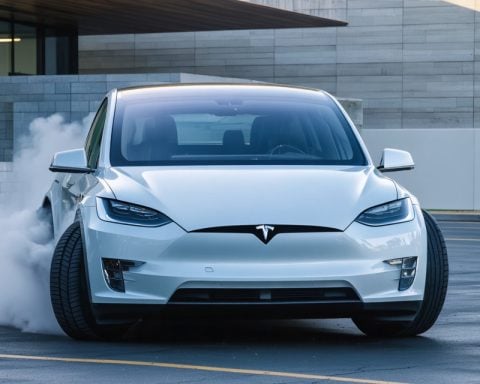The bike industry in Europe is facing unprecedented turmoil. This summer, multiple companies have succumbed to financial strain, and now the Dutch firm Amslod has abruptly halted its operations.
In recent months, the biking sector has seen a significant wave of insolvencies, with brands like Simplon in Austria and WATT in the Netherlands declaring bankruptcy. Amslod’s collapse is adding to an alarming trend, marked by many firms struggling against a backdrop of rising inflation, dwindling consumer demand, and geopolitical uncertainties.
Amslod, known for its electric bicycles, announced its immediate cessation of business due to severe financial challenges. Reports indicate that the company’s shops and service points are now closed, leaving customers without any means to purchase new bicycles or receive maintenance services. Promises of repair and upkeep for existing bikes have been completely abandoned as well.
The difficulties plaguing Amslod are not new; they had previously sought a debt restructuring plan to address an outstanding €20 million liability but evidently failed to reverse their fortunes. This unfortunate sequence of events has culminated in the necessity to cease all activities, showcasing the gravity of the situation in the cycling industry.
As the fallout continues, the future of biking in Europe remains uncertain, with many fearing further disruptions in the months ahead.
Are Electric Bikes Facing a Crisis in Europe? Insights and Trends
The Current State of the European Bike Industry
The European bike industry is navigating through a stormy period, marked by financial turmoil and significant market shifts. Companies like Amslod, Simplon, and WATT have faced insolvency, showcasing the vulnerability of even prominent brands in this sector. The challenges stem from a combination of rising inflation, changing consumer preferences, and global economic uncertainties, leading to a significant decline in consumer demand for bicycles, particularly electric models.
Key Issues Facing the Industry
Financial Strain
The financial instability of several bike manufacturers has become a pressing issue. Amslod’s abrupt cessation of operations, following its failure to restructure a €20 million debt, illustrates the precarious position many companies find themselves in.
Declining Consumer Demand
Changing consumer behavior post-pandemic has led to a slowdown in bike sales. Initially, the pandemic saw a surge in bicycle purchases as people sought alternatives to public transportation. However, as restrictions eased and other modes of transport became accessible again, demand for electric bicycles has waned.
Pros and Cons of Electric Bikes
Pros:
– Eco-Friendly Transport: Electric bikes offer a sustainable alternative to cars, reducing carbon emissions.
– Convenience and Efficiency: They provide an easier commute, especially in urban settings, allowing riders to navigate through traffic with less effort.
– Health Benefits: Riding an electric bike still offers physical activity, promoting an active lifestyle.
Cons:
– High Initial Costs: Electric bikes are generally more expensive than traditional bicycles, which may deter potential buyers in uncertain economic times.
– Maintenance Concerns: The collapse of companies like Amslod raises concerns about repair services and spare parts availability for consumers who invested in these brands.
– Market Saturation: The surge of electric bike models post-pandemic has led to a saturated market, complicating consumer choices and driving prices down, impacting profitability for manufacturers.
Future Trends in the Market
As the market recalibrates, several trends are emerging:
– Focus on Sustainability: Companies are increasingly investing in sustainable practices, from manufacturing processes to the materials used in production.
– Resilience and Innovation: Brands are expected to pivot towards innovative solutions, potentially integrating smart technologies or enhancing the customer buying experience through improved service offerings.
– Government Initiatives: With many European governments promoting green transportation, there may be financial incentives introduced to support eco-friendly practices in the biking sector.
Conclusion
The future of the biking industry in Europe remains uncertain amid these turbulent times, yet it also presents opportunities for innovation and transformation. Companies that adapt to changing consumer needs and invest in sustainability may emerge stronger, setting new benchmarks for the cycling market.
For more insights on the biking industry, visit BikeBiz.


















